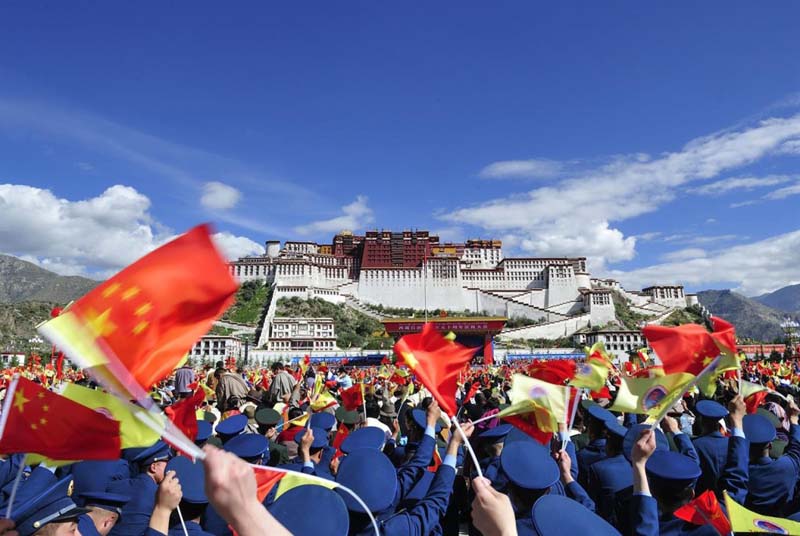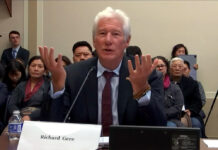
(TibetanReview.net, Jul15’20) – Restrictions concerning religion on party members in Tibet are even more onerous than those for party members in the rest of the People’s Republic of China, reported bitterwinter.org Jul 14.
In May last year, CCP members in Anshan, a prefecture-level city in the northeastern province of Liaoning, received “ten prohibitions on religious beliefs.” They not only barred Party members from holding religious beliefs but also provided strict guidelines for their daily lives, the report said.
For example, they were prohibited from wearing or displaying anything with religious symbols at home and work or entering places of worship for non-work purposes, even during their work-related trips and holidays or visiting historic or scenic sites. Meetings with religious personnel without permission were also banned.
But restrictions for Party members in the Tibet Autonomous Region are even more stringent, the report noted.
It said the Organization Department (human resources division of the CCP) of Chamdo, the region’s third largest city, had issued “sixteen restrictions” also last May. According to them, Party members were forbidden from holding religious beliefs and attending religious activities. They were also banned from “having private discussions and willfully spreading personal views” on ethnic and religious policies and related issues. Sharing “sensitive remarks” about religious beliefs on social media was not allowed as well, the report noted, citing a copy of the 16-point restrictions.
The restrictions were stated to mandate that Party members could not “swear off gambling, smoking, drinking, killing, and eating meat and fish in the name of deities or Buddha.”
They faced punishment if they opposed the government’s plans to build public facilities on sacred and holy Buddhist mountains, lakes, and other areas. The CCP defines such acts as “using religion as a pretext to interfere in public social undertakings,” the report noted.
CCP members were also stated to be obliged to report to the government about relatives who were clergy members living abroad to whom they sent money.
The report said these restrictions were being widely used to punish CCP members or their families for holding religious beliefs and practicing their faith; even for something that had happened years ago.





